2019 International Symposium on Revenue Management was held on 25th and 26th May in Zhejiang University. Co-organized by School of Management, International Research Center for Data Analytics and Management, and Ocean College, Zhejiang University, the symposium focused on “Data-Driven Analytics in Revenue Management” and gathered world’s top scholars of revenue management from Hong Kong University of Science Technology, University of Michigan, University of Illinois, University of Amsterdam, Purdue University, National University of Singapore. Meanwhile around 150 experts from New Retail Research Center of Alibaba, Fliggy of Alibaba Group, China TravelSky Holding Company, Cardinal Operations, school faculty and students participated this symposium.
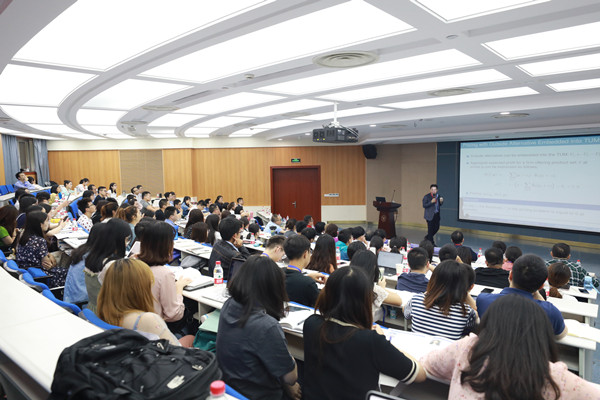
Hosted by Prof. Zizhuo Wang from University of Minnesota, and Prof. Qingwei Jin, Prof. Yi Yang, Prof. Mingzheng Wang from Zhejiang University, the symposium aims to promote theoretical development and business practice in the area of revenue management in China. In the opening speech, Prof. Weihua Zhou, associate dean of the School of Management, Zhejiang University, introduced the development of School of Management and International Research Center for Data Analytics and Management. Prof. Dan Zhang, chair of the symposium, University of Colorado Boulder, pointed out revenue management is an emerging and exciting research field with broad research prospects and application value. He encouraged students to actively explore and promote the field of revenue management.

From left to right: Prof. Weihua Zhou, Prof. Dan Zhang, Prof. Qingwei Jin, Prof. Yi Yang, Prof. Mingzheng Wang
Prof. Guillermo Gallego from Hong Kong University of Science and Technology introduced a Threshold Utility Model(TUM)where consumers buy all products whose net utility exceeds a non-negative product specific threshold. Through measuring purchasing willingness of each consumer, TUM effectively expresses multiple purchase and choice behavior of consumers. He holds the opinion that TUM is arguably more appropriated in a retail setting than a traditional discrete choice model where consumers are confined to the selection of a single alternative. The TUM could also be used as a two-stage discrete choice model, where consumers first form a random consideration set by including all the products whose net utility exceed the threshold, and then selectproduct with the highest surplus from the consideration set. They provide bounds and approximations for the expected maximum surplus and choice probabilities.

Prof. Guillermo Gallego, Hong Kong University of Science and Technology
With the development of computing technology and data availability, an increasing attention is paid to data-driven and data-integrated decision making in practice and research. Prof. Qi Annabelle Feng (Krannert School of Management, Purdue University) proposed a framework of Operational Data Analytics (ODA) and demonstrated its application through the example of newsvendor model. The ODA system integrates data into decisions by building a data integration model and validation model, with the goal of making the validation model as close as possible to the real model. Compared to the traditional estimation-optimization two-stage method, ODA can significantly improve the quality of decision-making in the case of limited data. In addition, her research reveals that more decision variables (degrees of freedom) do not necessarily bring higher returns.
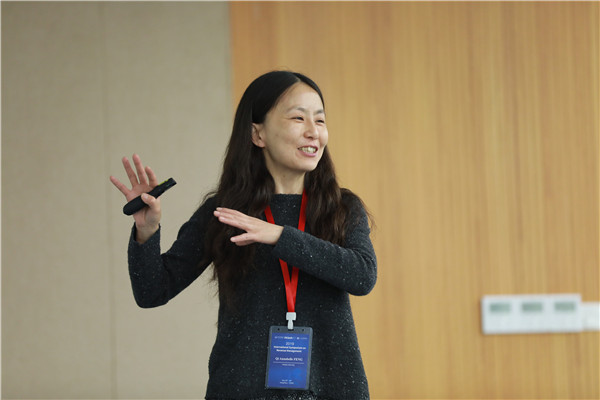
Prof. Qi Annabelle Feng, Krannert School of Management, Purdue University
Based on current researches in economics, it is well known that the revenue rate function is concave in products market share. This property is very helpful for simplifying the optimization decision. However, the firm can only make decision on prices instead of market share directly. To take advantage of this property, Prof. Cong Shi from University of Michigan proposed an online inverse batch gradient descent (IGD) algorithm and an inventory adjusted (IGD-I) algorithm to solve the dynamic pricing problem in network revenue management. Specifically, in each iteration, the gradient descent algorithm is implemented by establishing a two-way mapping between the product market share space and the product price space. The algorithms perform well even in high-dimensional systems with a large number of products or resources.
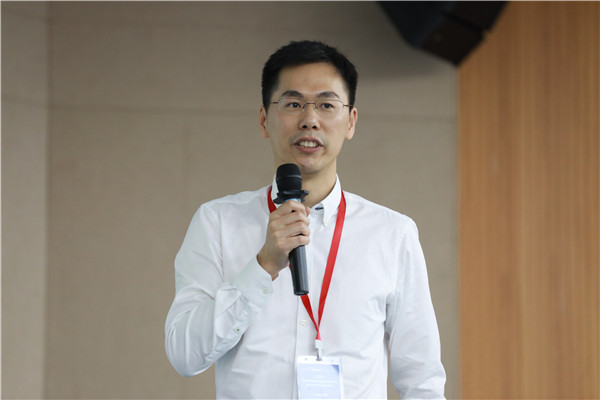
Prof. Cong Shi, University of Michigan
Prof. Xin Chen from University of Illinois at Urbana-Champaign considered the issue of revenue management in an environment with uncertain network capacity, according to the problems of reservation limit control for network revenue management. He defined the airline-ticket revenue management model as a three-component model of capacity, demand and price. He took the uncertainty of flight capacity updateof major airlines to Europe as an example to illustrate that the revenue model needs to take into account the uncertainty of capacity update. Based on his examples, he designed the corresponding stochastic gradient algorithm and compared the results and computing time of four algorithms: booking limit control (BL), deterministic linear programming (DLP), virtual capacity bid-price control (VCBP), dynamic programming decomposition (DPD). The algorithms show the excellent performance in a random environment.

Prof. Xin Chen, University of Illinois at Urbana-Champaign
Prof. Arnoud Den Boer from University of Amsterdam introduced a sellers’ dynamic pricing problem with demand learning and reference effects. The dynamic learning mechanism is mainly used to estimate consumer price sensitivity and reference price sensitivity in the case of incomplete information circumstance. By slowly changing of the selling price to control the evolution of the reference prices and gradually accumulates sales data to balance the tradeoff between learning and earning, he proved that, under a variety of reference-price formation mechanisms, this policy is asymptotically optimal. The dynamic learning mechanism can be used in business decisions to quickly learn users’ price sensitivity and reference price sensitivity.

Prof. Arnoud Den Boer, University of Amsterdam
Prof. Stefanus Jasin from University of Michigan reported "Product Selection and Pricing in E-Commerce". When a merchant needs to decide product display selection, pricing and delivery decisions, the conventional solution is to solve them with three separate steps, while his research established a joint decision optimization model that comprehensively considers three stages. By considering these three phases in a comprehensive manner, the proposed strategy has significant advantages in retailer revenue optimization. His research shows that additional benefits can be generated with the combination of revenue management and logistics optimization.

Prof. Stefanus Jasin, University of Michigan
Prof. Chung Piaw Teo from National University of Singapore shared his valuable experience in revenue management and dynamic pricing. He emphasized on the pricing analytics and its application by introducing two real cases and pointed out that we need to understand the choice model before getting to know about revenue management. He also interpreted how to choose the right model among various available choice models. He presented Representative Agent Model, which related the product’s price and its market share, established a framework for the estimation and optimization of the multi-product pricing problem, showed that this problem can be translated into a piecewise linear programming problem. and the model had strong robustness. The construction of this Representative Agent Model partially solved the choice model selection issue faced when dealing with pricing problem and performed fairly well in real case study.
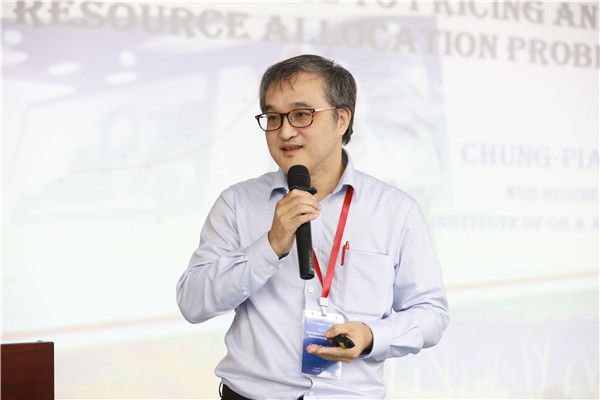
Prof. Chung Piaw Teo, National University of Singapore
panel discussion was mainly about how to conduct research for junior researchers. Prof. Feng emphasized the most important thing is to find a topic that researcher himself is really interested in, and at the same time, reading, experiencing, communicating are also vital. Prof. Gallego and Prof. Chen came up with the ideas that "talent, passion, marketing" are three foundations for junior researchers. At last, they all agreed with the idea that at present, it is a golden era to apply big data in the field of revenue management research. Young scholars are encouraged to communicate and cooperate more with enterprises.
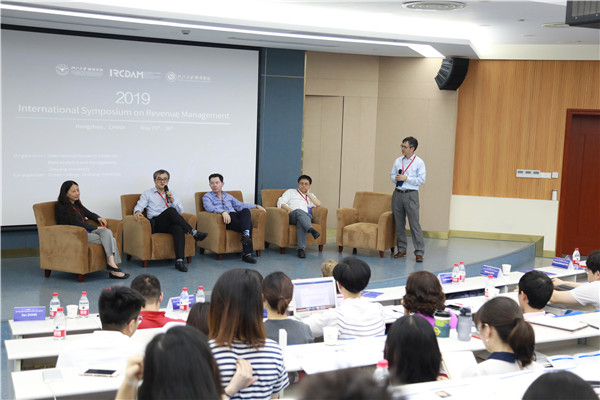
In the second day, keynote speakers shared their newest developments on revenue management in various areas. Prof. Zizhuo Wang from University of Minnesota and CUHK (Shenzhen), Cardinal Operations introduced the practice of revenue management in China and the groping process of Cardinal Operations to implement revenue management in the industry. Based on different types of revenue management customers, he analyzed the current situation and demands of various companies, such as e-commerce platform, retail brand owners and logistics enterprises. He concluded that the current practice of revenue management is mainly to provide effective tools and optimized alternatives for enterprises to better assist managers in making decision.
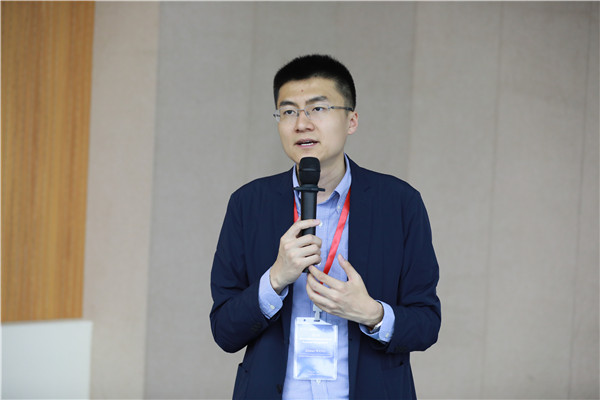
Prof. Zizhuo Wang, University of Minnesota and CUHK (Shenzhen), Cardinal Operations
Mr. Wuyang (Michael) You from New Retail Research Center of Alibaba reported on the supply chain transformation in the new retail era. He mentioned that in the past the core of operational management is inventory management, but in recent two years, more consideration has been given to the combination of front and back to maximize the revenue. The new retail has the characteristics of crowd change, product upgrade, channel fragmentation, and experience-oriented. At the same time, on the demand and commodity side, the number of products is growing fast and the life cycles of products are becoming shorter and shorter. Besides, products are sold through omni-channel and multiple scenarios, and the demands are pulsed. These changes have had a great impact on the merchants stocking plan and production plan, and also pose a great challenge to the supply chain. From the customer-driven business model of C2B, in the future trend of supply chain development, the five links: value creation together with customers, personalized marketing, new retail, pull distribution and flexible production, are indispensable and closely combined with each other.
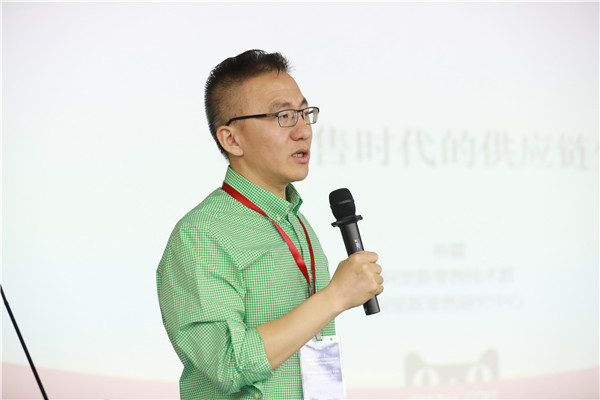
Mr. Wuyang (Michael) You, New Retail Research Center of Alibaba
Mr. Yaoshuai Zhao from China TravelSky Research and Development Center gave a report on “The Future of Revenue Management of China”, which summarizes the lessons and experiences learned from the usage of TravelSky’s revenue management system. He mentioned the use of the revenue management system has promoted the strategic transformation of Air China, maintained the advanced nature of the business, and accelerated the modernization of the management system. In the face of the inadequacies and the contrast and gap between Chinese and foreign aviation revenue management, he summarized three main reasons: culture, market and management mode. At the same time, he exemplified that there are many difficulties in directly applying foreign concepts and ideas to the domestic aviation revenue management system. He also pointed out that one of the main research direction of Chinas future aviation revenue management is dynamic pricing, and the technical trend is mainly focused on the development and application of algorithms, data, computing power and verification (digital hygiene technology).
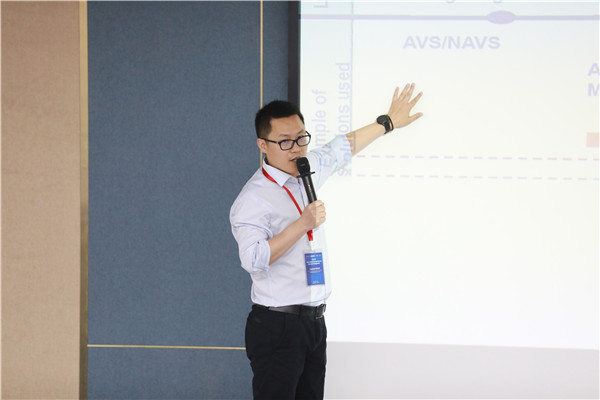
Mr. Yaoshuai Zhao, China TravelSky Research and Development Center
Mr. Rui (Ray) Wang from Fliggy, Alibaba Group shared his view points about yield management with integrated data in this Data-Technology era. By pointing out the different performance among hotels of varied levels, he indicated that the yield management in hotel industry is flexibility, unpredictable and complex. To improve the quality and efficiency of hotel service, he said companies should concern more about the increasing online digital capabilities. Furthermore, companies need to utilize the analytical tools and hire relevant talents to solve problems. To be specific, he gave us several samples to illustrate how to introduce large initial flux, then meet customers demand and retain those clients. In the end, he put forward the emerging challenges currently and the corresponding strategies to cope with those difficulties.

Mr. Rui (Ray) Wang, Fliggy, Alibaba Group
The School of Management, ZJU has always been committed to cultivating healthy power leading Chinas development, encouraging and advocating scholars, teachers and students to focus on future and the restructuring of entire China economy. Experts, scholars and industry elites communicated with each other around international frontier research and business practices, promoting the in-depth development and influence of revenue management in China, as well as laying a good foundation for university-enterprise collaboration and integration of practice and studies.